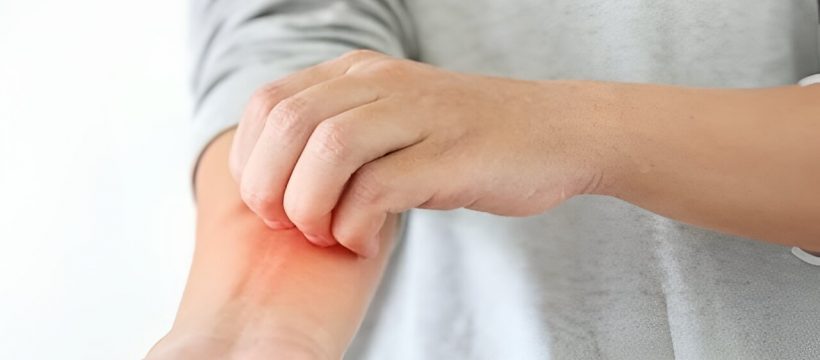
For adults with moderate-to-severe atopic dermatitis (AD), dupilumab treatment yields significant improvement in sleep quality and other AD-related signs and symptoms, according to a study published online Aug. 10 in the British Journal of Dermatology.
Joseph F. Merola, M.D., from Brigham and Women’s Hospital in Boston, and colleagues conducted a phase 4 randomized, double-blind study to examine the impact of dupilumab treatment on sleep and other patient- and physician-reported outcomes. Adults with moderate-to-severe AD were randomly assigned to dupilumab 300 mg once every two weeks (q2w; 127 participants) or placebo (61 participants) for 12 weeks. Subsequently, patients entered an open-label phase and received dupilumab 300 mg q2w for 12 weeks. Using a novel numeric rating scale (NRS), the primary end point was the percentage change from baseline to week 12 in sleep quality.
The researchers found a significant improvement in the sleep quality NRS in dupilumab-treated patients versus those receiving placebo by week 12 (least-squares mean difference, −15.5 percent). With dupilumab versus placebo, there were also significant differences in the peak pruritus NRS, SCORing Atopic Dermatitis (SCORAD), SCORAD sleep visual analog scale, and Patient Reported Outcomes Measurement Information System sleep-related impairment T-score. Compared with the placebo group, the dupilumab group had a lower overall percentage of patients reporting treatment-emergent adverse events.
“Future analyses will assess the persistence of dupilumab’s effect on sleep disturbance through 24 weeks,” the authors write.
More information:
Joseph F Merola et al, Dupilumab significantly improves sleep in adults with atopic dermatitis: results from the 12-week placebo-controlled period of the 24-week phase 4 randomized double-blinded placebo-controlled DUPISTAD study, British Journal of Dermatology (2023). DOI: 10.1093/bjd/ljad284
Journal information:
British Journal of Dermatology
Source: Read Full Article
